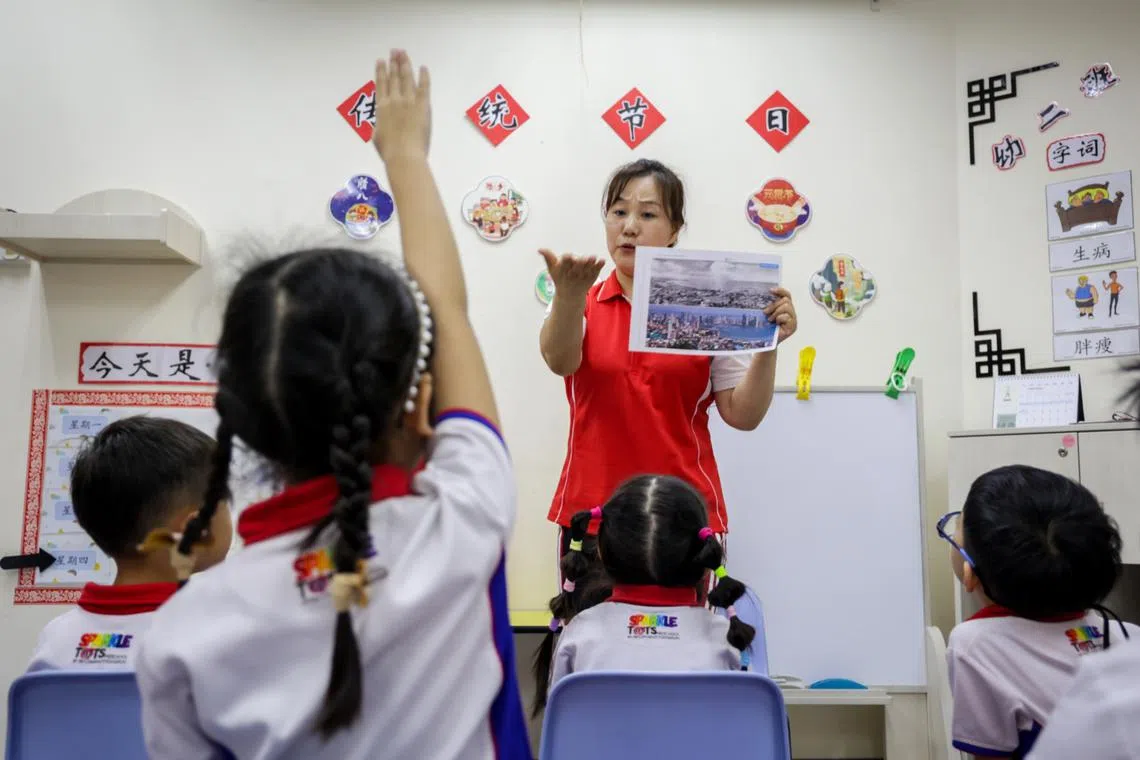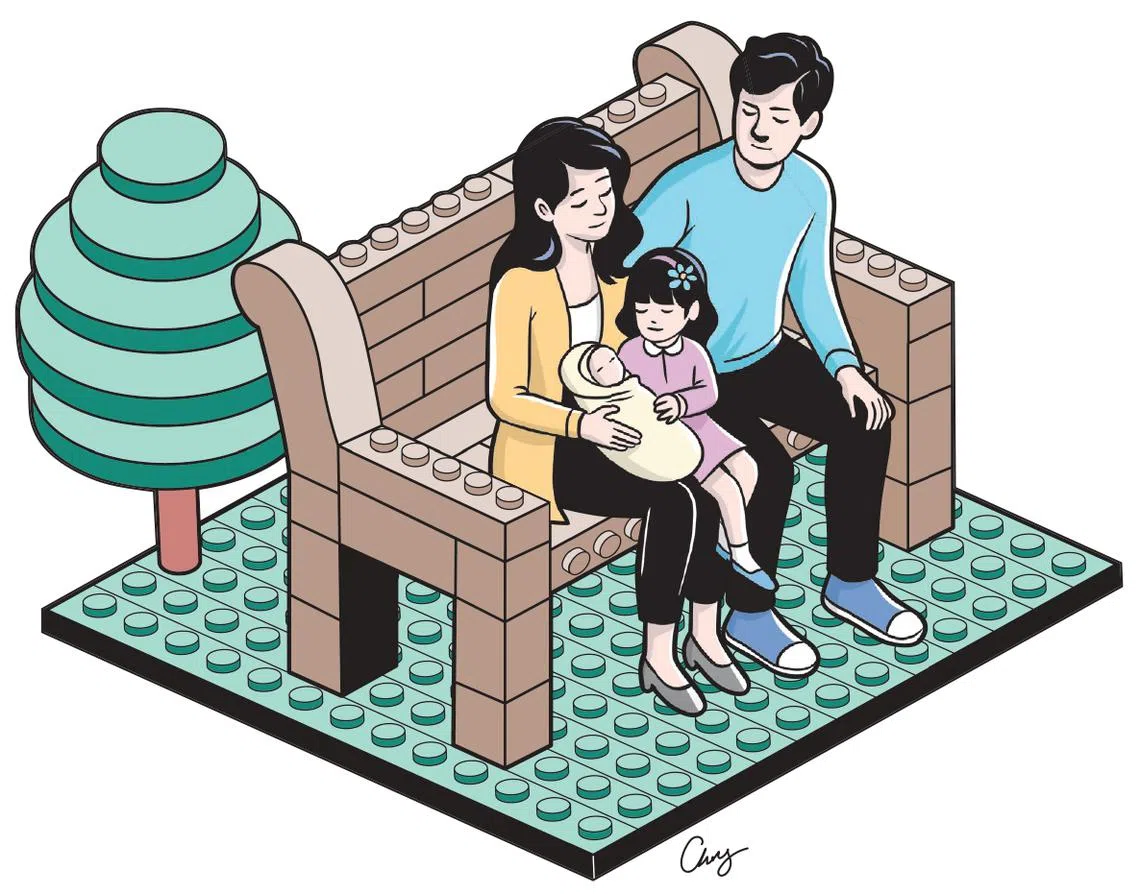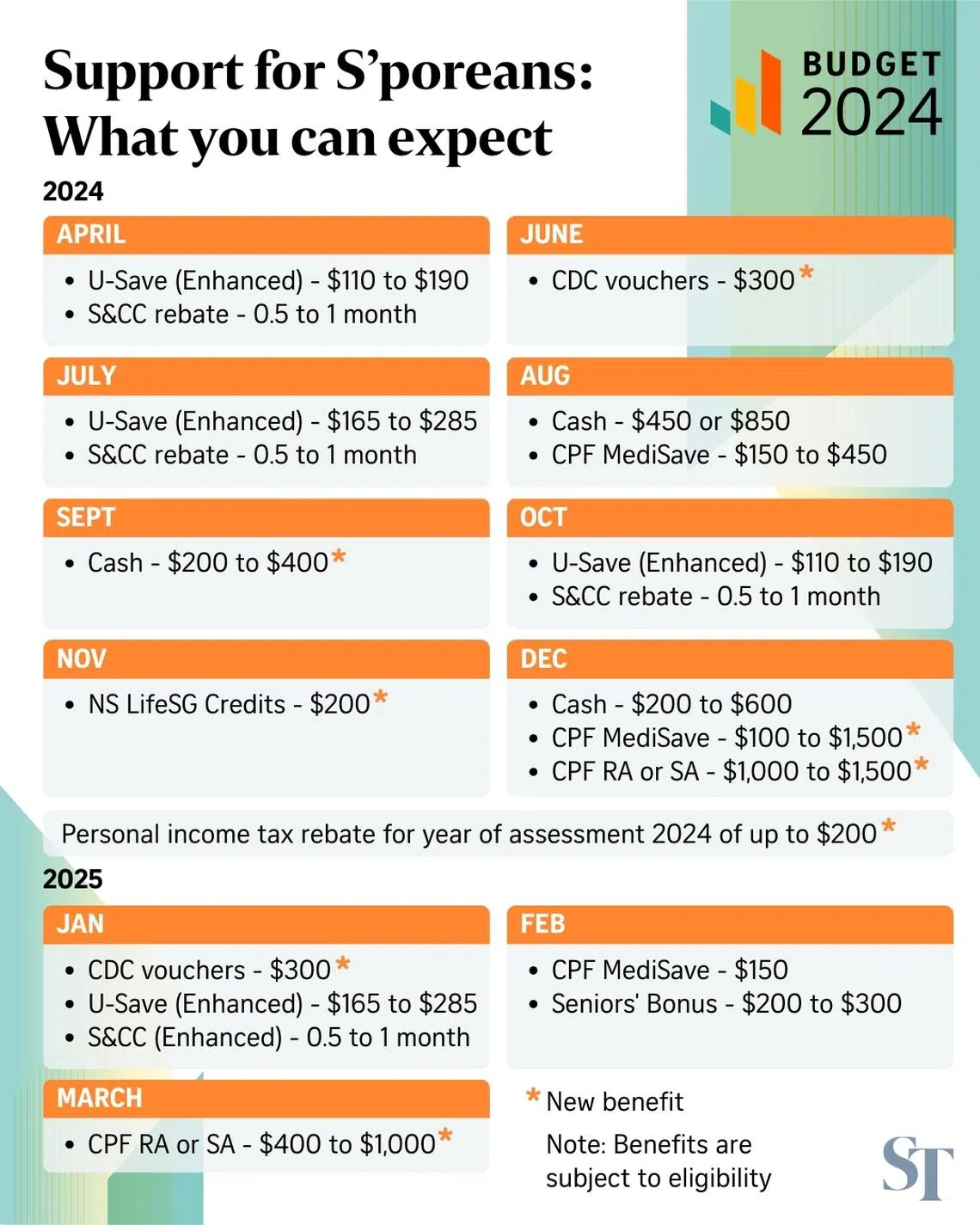Budget 2024: Reduced fees for govt-supported pre-schools, more help for people with disabilities
Sign up now: Get ST's newsletters delivered to your inbox

The fee cap for full-day childcare will drop by $40 a month to $640 for anchor operators and $680 for partner operators in 2025.
PHOTO: LIANHE ZAOBAO FILE
SINGAPORE - Parents with children enrolled in government-supported pre-schools will pay lower fees from 2025, and lower-income families with mothers who do not work will receive higher pre-school subsidies.
The fee cap for full-day childcare will drop by $40 a month to $640 for anchor operators and $680 for partner operators in 2025, to make pre-schools more affordable, Deputy Prime Minister Lawrence Wong said in his Budget speech on Feb 16.
It will be lowered again in 2026, he said, adding that details will be announced at a later date.
With the lowering of fees, full-day pre-school expenses for dual-income families will be comparable to the cost of sending a primary school pupil to school and after-school student care.
There are currently five anchor operators and 28 partner operators. A total of 333 centres are run by partner operators, which include chains such as Anglican Preschool Services and Little Skool-House.
Anchor and partner operators receive government funding and cap their fees to remain affordable.
DPM Wong said pre-school subsidies will be increased for lower-income families with non-working mothers, so that they receive the same subsidies as working mothers. This will benefit up to 17,000 children, he added.
Currently, more subsidies are given to children with working mothers, he noted.
The Early Childhood Development Agency provides a basic childcare subsidy of $300 for working mothers, while those who are unemployed get $150.
An additional childcare subsidy of up to $467 is given to working mothers with a gross monthly household income of $12,000 and below. Non-working mothers are currently not eligible for the extra subsidy.

To help young couples who are ready to settle down, the Government will provide a voucher under the Parenthood Provisional Housing Scheme (PPHS), so that eligible families waiting for their Build-To-Order (BTO) units can rent a Housing Board flat on the open market, said DPM Wong. The voucher will be available for a year.
The PPHS provides interim rental housing for families with a monthly household income of $7,000 or below, and have an uncompleted flat from HDB’s sales exercises.
“HDB receives many applications for the PPHS, and is ramping up supply to meet the demand. But in the interim, we want to do more to support such young families with urgent housing needs,” he said, adding that this is especially the case for those with young children.

At present, HDB has about 2,000 interim rental flats under the scheme. It will add another 2,000 vacated flats in Tanglin Halt
DPM Wong said the authorities are ramping up the supply of BTO flats, adding that there are schemes in place to give first-timer families greater priority in securing a home.
In schools, the Ministry of Education is placing greater emphasis on skills such as adaptive and inventive thinking, communication and civic literacy to help children thrive in an unpredictable future, he said.
The Government will top up $2 billion to the Edusave Endowment Fund to recognise students who demonstrate such competencies, as well as to support other initiatives, he added.
To help the families of those with special needs or disabilities, the maximum monthly fees at a special education (Sped) school will be reduced from $150 to $90, DPM Wong said.
The fee caps at all special student care centres will also be lowered to reduce families’ out-of-pocket expenses, he added.
He noted that although Sped school students already receive more subsidies than those in mainstream schools, the fees at most Sped schools remain higher due to higher underlying costs.
To help adults with disabilities integrate into the community and find jobs, more spaces will be added to sheltered workshops and day activity centres so that they can undergo skills training, said DPM Wong.
Sheltered workshops offer employment or vocational training to adults with disabilities who do not possess the competencies or skills for open employment, while day activity centres provide care and skills training.
More Enabling Services Hubs will also be launched to provide community support for people with disabilities and their caregivers, he added.
The first hub, opened in Tampines West Community Club in 2023, offers activities and learning courses for those with disabilities.
DPM Wong said details of these initiatives will be shared when Parliament scrutinises the ministries’ spending plans.

Read next - What’s in it for you? Here’s what to expect from the support measures announced today.


